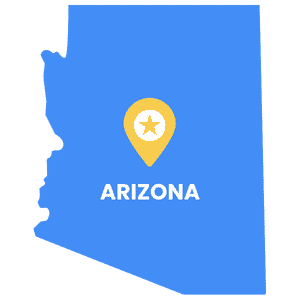Kansas State Information Page
Current Legality State – Kansas
Not Legal
- According to Kansas code, cannabis is Illegal
- Not Decriminalized
- No Medical marijuana programs; however CBD oil containing less than 5% THC is legal for people with specific debilitating medical conditions.
- Cannabis Possession is not allowed
- Cultivation is illegal and could result in a marijuana charge.

Current Legality State
Not Legal

- According to Kansas code, cannabis is Illegal
- Not Decriminalized
- No Medical marijuana programs; however CBD oil containing less than 5% THC is legal for people with specific debilitating medical conditions.
- Cannabis Possession is not allowed
- Cultivation is illegal and could result in a marijuana charge.
Your cannabis AI assistant
Tailored recommendations for your favorite
Sign up below for early access
*By signing up, you agree to the Terms and Conditions and Privacy Policy.
California residents, see our CA Privacy Notice.
Is Cannabis Legal In Kansas ?
Kansas law, as well as its’ recreational and medical legalization efforts, are moving slower than many of its surrounding states. It is one of seven states that has not established a medical program. Updating the laws requires an act of the legislature, which meets once a year for ninety days in even-numbered years and one period of unlimited duration in odd-numbered years.
In 2021, the House passed its first medical marijuana bill, so activists are hopeful for Senate approval as well. The 2022 session has convened, and medical cannabis is on the agenda for the Senate. Prior to the legislature adjourning its 2021 session, the Kansas House of Representatives approved a bill to legalize medical cannabis.
State Laws and Offenses
Marijuana possession penalties are significant in the state of Kansas and it is still considered one of the state’s controlled substances. It is also still federally illegal and a Scheduled I Controlled Substance.
Possession of less than twenty-five grams of marijuana for personal use could result in misdemeanor convictions and other potential penalties even for the first offense.
Criminal Penalties:
- First-time possession is a class B misdemeanor punishable by a 1,000 USD fine, and a maximum prison sentence of up to six months
- Second offense: 2,500 fine USD and a maximum sentence of twelve months in prison
- Third offense: felony charge and steep fines up to 100,000 USD and up to three and a half years of jail time.
- Possession of marijuana with intent to distribute below twenty-five grams is considered felony possession and may result in a mandatory minimum of fifty-one months in prison and fines of up to 300,000 USD depending on criminal history.
- If a person may possess marijuana in more significant distribution amounts, it could result in more severe sentencing, with penalties up to one year, and topping out at seventeen years in jail and 500,000 USD in fines.
- Cultivation penalties have an equal severity level. They go up with the number of plants, with as few as five marijuana plants resulting in a felony charge, up to seven years incarceration, and a maximum fine of 300,000 USD.
- Kansas’ marijuana possession limits and drug paraphernalia laws resulted in the arrest of over 5,000 people in 2016.
- Marijuana offenses can be charged in state or federal court. If charged, to ensure that you are receiving an affirmative defense, reach out to an experienced criminal defense attorney. Criminal defense lawyers with experience handling small and large marijuana crimes at the state and federal levels can significantly help and personal information will remain sealed due to the attorney-client relationship.
- Including:
- Growing marijuana
- Marijuana trafficking
- Distribution or sale
- Possession with the intent to sell
- Drug possession
- Conspiracy
Kansas Qualifying Conditions For Medical Marijuana
Medical marijuana is illegal in Kansas. However, CBD (cannabidiol) oil with less than 5 percent THC is currently legal for medicinal use with a written certificate from a physician.
Cannabis Policy Reform Timeline
2015: Legislation to establish a medical marijuana program via HB 2011 was introduced and died in committee. Several previous attempts have failed over the years as well.
2016 and 2017: HB 2462 and SB 112 reduced penalties for possession of small quantities of marijuana
2018: SB282 was passed and legalized the sale and use of CBD.
Governor Laura Kelly recently stated that she would like to ratify a medical marijuana bill and would likely support the legalization of recreational marijuana.
2019: The committee issued recommendations for a medical marijuana program to exclude unrefined plant products and vaping; it also suggested that medical marijuana cardholders from other states found with cannabis products should not be prosecuted.
2020: House Bill 217 was introduced in June but died on the first day in the Committee on Federal and State Affairs.
2021: After a push from the state’s Marijuana Policy Project, SB158 was approved and set to be voted on by the Senate. Federal law in 2022 to legalize medical marijuana could be updated in Kansas after the senate hearing.
Some of the Current Cannabis Bills in Kansas
- KS SB188 – Requiring a secured release for release prior to trial when a person is charged with certain offenses and creating a mechanism for unsecured judicial release.
- KS SB176 – Amending the Kansas indoor clear air act to prohibit smoking on the gaming floor of a lottery gaming facility or racetrack gaming facility and amending the definition of smoking to include the use of an electronic cigarette and smoking marijuana.
- KS SB68 – Making and concerning certain supplemental appropriations for fiscal year 2025 and appropriations for fiscal years 2026 and 2027 for various state agencies.
- KS SB56 – Authorizing home delivery of alcoholic liquor and cereal malt beverage by licensed retailers, drinking establishments and third-party delivery services.






